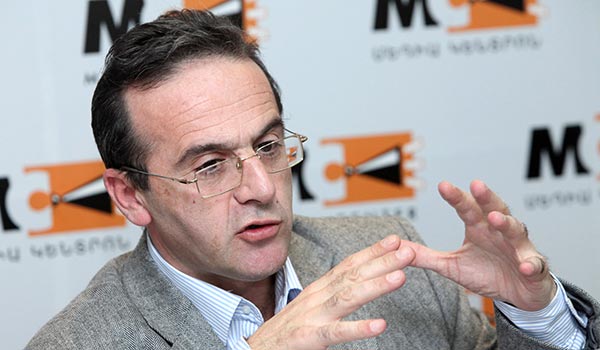Vote Breakdown: Human rights activists says referendum reveals “awareness” problems in rural areas
18:13, December 9, 2015 | News, Other news Opposition members and civil society representatives believe that the data on voting in last Sunday’s constitutional referendum released by the Central Election Commission (CEC) may speak volumes also about the problems experienced in different parts of the country.
Opposition members and civil society representatives believe that the data on voting in last Sunday’s constitutional referendum released by the Central Election Commission (CEC) may speak volumes also about the problems experienced in different parts of the country.
An hour later after the summary of the vote results, opposition proxies and observers working at polling stations, presented on their Facebook account the results of the ballot in relevant polling stations, claiming that the number of “no” votes prevailed by a big margin. Noteworthy were the results in the polling stations of the cities of Gyumri, Vanadzor and in capital Yerevan.
During the rally held in Liberty Square on December 7, Aram Manukyan, of the Armenian National Congress (ANC), thanked the voters of these cities.
“We have won in all towns and villages. We have beaten oligarchs in their fiefdoms, where they delivered money, intimidated, but, nevertheless, we won. They have falsified a lot. They were not able to get along with just drawing some figures. According to our calculations, 600,000 people voted “no”, whereas 150,000-200,000 said “yes”. We will spoil the power you have stolen, your faked power. We will spoil your life here,” said Manukyan.
According to the CEC data, “Yes” has won by a big difference. The highest “Yes” percentages have been provided by the Vayots Dzor province (78.50 percent), the Ararat province (77.93 percent), the Gegharkunik province (76.57 percent), the Armavir province (72.89 percent), the Syunik province (71.62 percent), and the Kotayk province (66.58 percent). Most “No” votes have come from Yerevan (41.24 percent), the Shirak province (42.43 percent), the Lori province (39.20 percent).
In Gyumri “no” won by 52.25 to 40.75 percent. The number of “No” voters in Vanadzor was also higher than those who cast their votes against the changes.
The provinces, which provided high percentage of “yes” votes, are known as areas that are under control of a particular politician, an MP or a governor: for example Prime Minister Hovik Abrahamyan holds sway in the Ararat province, MP Gagik Tsarukyan in the Kotayk province, MP Manvel Grigoryan and Seyran Saroyan in the Armavir province and governor Suren Khachatryan in the Syunik province.
In addition to the influence of personalities, experts point out that the government secured “yes” votes mostly at the expense of the rural population.
Helsinki Citizens’ Assembly Vanadzor Office head Artur Sakunts says that people in Yerevan, Gyumri, Vanadzor are mostly informed about the constitutional changes, have a viewpoint, whereas fewer people in rural areas have their own standpoint and there is a serious problem of awareness there too.
“In villages where out-migration, the number of migrant workers is large, social dissatisfaction is greater, they vote for the initiative of the authorities, which is illogical, there is not such thing in any country in the world, it can be only in case of a totalitarian approach, when vote results are falsified like it was done in the Soviet Union,” Sakunts told ArmeniaNow.
According to him, in Gyumri and Vanadzor, where civic institutions are more or less established, there were quite a lot of control possibilities, which cannot be said for instance about the provinces of Armavir and Ararat. Sakunts says that the development of civil society is crucial in this sense.
Levon Zurabyan, the deputy head of the ANC, also acknowledged the role of nascent civil society in preventing massive fraud in large cities and towns. At a rally on Monday he said that a serious civil society must be created in areas which are under control of officials “with nicknames.”
Levon Barseghyan, the head of the Asbarez Journalists’ Club and an opposition member of Gyumri’s Council of Elders, referring to 1,000 observers of the voting process in Gyumri, who “fought against the regime” on that day, wrote on his Facebook account: “You may think that we did the same, but we did our utmost. We are proud of the fact that we cannot stay in the herd, we are unique, we are strong, we are pleased that in our hearts we have the whole country, not а bowl with a pack of wolves called “Republic of Armenia”. And we are not going to yield our country to anyone.”
